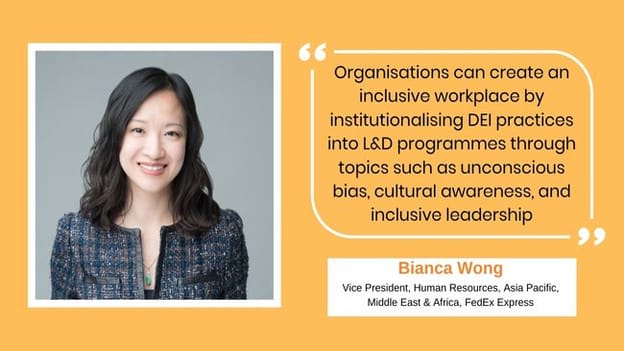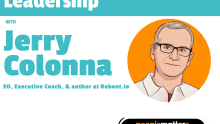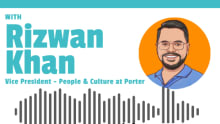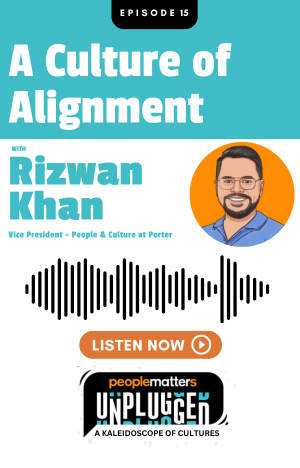How FedEx is fostering an inclusive and future-ready workforce in AMEA region

As the Vice President of Human Resources, Asia Pacific, Middle East & Africa at FedEx Express, Bianca Wong oversees people and work strategies for 35,000 workers in the regions. She has played an instrumental role in building an organisation with a people-first approach and a digital-first mindset and capabilities. She believes that talent management needs to be agile and fit-for-purpose, enabling employees to develop future-forward skills to bolster an organisation’s growth.
In an exclusive interaction with People Matters, Bianca shared insights into FedEx’s people policies, employee engagement, and well-being initiatives, as well as strategies for talent retention, learning and development, and fostering an inclusive culture for a future-ready workforce.
Here are the edited excerpts:
Please illustrate the distinctive policies in place at FedEx AMEA that prioritize employee well-being and growth. How do these policies contribute to fostering a positive and inclusive work culture?
FedEx is a people company first and foremost. Our team members are the foundation of our value chain. They are empowered to deliver exceptional service to our customers, who can then count on us to be part of their growth and success. We believe that team members are able to deliver their best when they can be their best selves and have the opportunities to learn, grow and spread their wings.
We have team members working around the clock in front line stations and gateways, on the road, and offices with options to work in a hybrid manner for certain roles. That means we need a broad ranging wellbeing programme to serve our team members wherever they are and whenever they need it. We offer Employee Assistance Programmes (EAP) in almost all markets around the region. Our programmes cover social, mental, and emotional, financial, physical, and occupational well-being. In addition to actively promoting mental and physical wellbeing in campaigns and health talks we consistently update our self-serve on-demand resources to ensure our team members are well-equipped to recognize and manage workplace stresses. We also actively review our benefits to meet employees’ needs. Last year besides improving the parental leave policies, we introduced adoption leave across the region to meet our team members’ diverse family needs.
Team members at all levels are encouraged to chart their growth journey within the organisation. They can take ownership of their personal career development through access to various learning platforms and tuition assistance which they can use for external programmes and certifications. Talent reviews are conducted regularly across all levels of the organisation. Talent with the potential and desire to learn have opportunities to advance their careers through internal promotions, job rotations, and cross-functional projects.
One great example is our recent focus in hiring people with determinations who are not limited by their physical or mental disabilities. In India, we brought them in as interns to experience our work environment and culture, and subsequently offered promotional opportunities for a full-time position. This is a strong example of how we create an equitable and inclusive workplace that puts a spotlight on talent and celebrates their potential.
As an HR Leader at FedEx AMEA, what learning opportunities do you provide to ensure that talent is future-ready? Can you share examples of the most effective strategies for building a culture of continuous learning?
Today, FedEx business sits at the intersection of the physical and digital worlds. We founded our business 50 years ago using technology to support our physical network and our business model of time definite delivery. Now we are using technology and data to offer our customers both digital solutions they can use as well as physical delivery.
To enhance the digital knowledge of our workforce, we started the BOT-it Programme in 2022 to provide structured training in a learning community setting to empower employees to use automation to solve business issues. Frontline team members are trained to be bot makers who realise business value as they learn. To date, they have developed 56 new automation products to support their functions and automated 51,000 manual hours which represents an enormous step-up in efficiency and productivity.
We also created what we call the Learning Arena to build a digital-first mindset and capabilities across our AMEA workforce. It’s an on-demand virtual academy for team members at different levels and aptitudes to take learning in their own hands across topics from soft skills like problem solving, communication skills, project management to hard skills such as Power BI. A gamification feature adds a fun element to learning as team members can pose questions to the learning community, as well as track their own learning progress individually or in comparison with their peers.
Recognition and assessment are pivotal elements in cultivating a thriving workplace. In this context, could you articulate your long-term vision for talent acquisition, development, and retention within the region?
Talent management needs to be agile and fit-for-purpose. We are adopting various tactics for talent attraction and retention, and they will evolve more quickly than ever, adopting a skill-based approach. Jobs will be more genetically defined, with emphasis on continuous exposure to new experiences. Team members will be developed through attainment of future-forward skills that contribute to the organisation’s growth. Talent retention may go beyond the employee life journey within the organisation but also beyond to engage with alumni or the skill-based gig workforce. Taking myself as an example, I rejoined FedEx after 10 years working for other wonderful companies!
Engaging with the younger generation to create a future talent pipeline is also one of our core talent strategies. Working with apprentices and interns across many markets, we realise that timely recognition and feedback accelerates their growth journey and fuels their curiosity to gain diverse experiences in the organisation. With many successful stories of leaders who have developed their career through job movements across functions, we also offer many role models for these young talents to craft their own development journeys.
Recognition is an incredibly important part of our culture and our total reward proposition. We celebrate employees who exhibit our values: own outstanding, drive business results, commit to do good, take care of each other and create what’s next for the business. Leaders can use our Bravo Zulu Award to endorse extraordinary performance above and beyond normal job responsibilities. The Purple Promise Recognition and Awards recognizes front line team members who deliver an outstanding customer experience or demonstrate good problem-solving skills. Our unique Humanitarian Award is given to team members who reach out to others in times of need, exhibiting behavior that goes above and beyond basic community responsibility. The global Five Star Award recognizes superior performance and contribution to the company. The significance of these recognition programmes is not only to celebrate outstanding performance, but also to inspire others in making a positive impact.
Share insights on emerging workplace trends in the AMEA region, the role of AI technologies, and how global organisations can foster an inclusive and engaging workplace for a diverse workforce. Also, please share insights into how you are supporting women progressing towards leadership roles.
One thing we are all very proud of is that at FedEx women in leadership is the norm and not the exception. Looking around our organisation, not only are our women leaders highly visible, but many have also built their entire career paths here from entry level to the C-suite, and many started in engineering and tech roles.
The AMEA region is also the most diverse region in our network. The notion of gender equality varies greatly in the markets we operate. So, it’s incredibly important to build an inclusive workplace culture where women can thrive as much as their male counterparts do. To achieve this, we need to ensure a level playing field both within and outside the organisation.
To demonstrate our commitment to this approach in 2021 our Regional President signed the United Nations Women’s Empowerment Principles (UNWEPs) – Equality Means Business. These principles push us further along the path of advancing gender equality and empower women in our workplace and in the communities we serve.
A good example of how we support women in the community came during the COVID pandemic. We found female owned small-medium enterprises were being disproportionately impacted. We helped over 700 women in India restart their enterprises and recover with essential tools and support. And in the Philippines our FedEx female leaders have become mentors and are supporting an education programme for female students focused on their growth in engineering and science.
Internally we create an inclusive workplace by institutionalising Diversity, Equity & Inclusion (DEI) practices into our learning & development programmes through topics such as unconscious bias, cultural awareness, and inclusive leadership. An expanded equal opportunities statement was added to all our job postings to specifically tackle the research finding that women are less likely to put in their applications unless they feel they are fully qualified for the positions. We also established employee resource groups with support from leadership allies for underrepresented groups and ensured that DEI principles are incorporated in selection and promotion practices.
Reflecting on the past year, share the most effective strategies for ensuring the sustainable success of FedEx in the AMEA region. What advice would you give to HR leaders dealing with culture and people inclusivity challenges?
In the past year, we celebrated our 50th anniversary to create renewed energy around our ‘Transformation as Usual’ mindset. Change management practices, including increased frequency in communications and equipping leaders with the tools and process they need to transform, were introduced through the organisation. What was incredibly important was to carefully curate the change messages back to the stable anchors – our Enterprise Culture Values and Employee Value Proposition.
In today’s world, saying you are a ‘people-first’ organisation is not enough. All leaders – not just HR leaders - need to be intentional to navigate the more dynamic and diverse talent and business environment. It is ever more crucial to identify your organisation’s DNA, your unique proposition, so that you can be more targeted in your talent strategy and sustain a culture that is authentic yet inclusive for all.
Work, workplace, and workforce will continue to evolve – but one thing we should all strive for is for our team members to be their best self every day.













